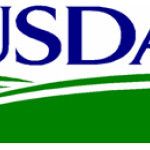- Industri: Government
- Number of terms: 41534
- Number of blossaries: 0
- Company Profile:
An independent, quasi-judicial federal agency that provides objective trade expertise to both the legislative and executive branches of government and determines the impact of imports on U.S. industries. It makes recommendations concerning countervailing duty and antidumping petitions submitted by U.S. industries seeking relief from imports that benefit from unfair trade practices. The agency also updates and publishes the Harmonized Tariff Schedule of the United States. Established by Congress in 1916 as the U.S. Tariff Commission, the Trade Act of 1974 changed its name to the U.S. International Trade Commission.
Industry:Agriculture
Regulations used by governments to restrict imports from other countries. Examples include tariffs, embargoes, import quotas and unnecessary sanitary restrictions.
Industry:Agriculture
A multilateral financial institution established in 1945 to help member countries with international payments problems and to maintain orderly exchange rate policies. U.S. agricultural exports benefit indirectly from activities of the IMF that maintain the global trade in commodities and food.
Industry:Agriculture
An intergovernmental forum responsible for administering the International Grains Agreement (IGA).
Industry:Agriculture
Replaced the International Wheat Agreement in 1995. The IGA comprises a Grains Trade Convention (GTC) and a Food Aid Convention (FAC). The IGA is administered by the International Grains Council (IGC), an intergovernmental forum for cooperation on wheat and coarse grain matters. The Grains Trade Convention provides for information-sharing, analysis and consultations on grain market and policy developments. Under the Food Aid Convention, donor countries pledge to provide annually specified amounts of food aid to developing countries in the form of grain suitable for human consumption, or cash to buy suitable grains in recipient countries. The International Grains Agreement does not contain any mechanisms for stabilizing supplies, prices, or trade.
Industry:Agriculture
Title II of P.L. 95-223 (October 28, 1977) grants the President authority to regulate a comprehensive range of commercial and financial transactions with another country in order to deal with a threat to the national security, foreign policy, or economy of the United States, if the President declares a national emergency. This has been the basis for economic sanctions since expiration of the Export Administration Act.
Industry:Agriculture
An undertaking by a group of countries to stabilize trade, supplies, and prices of a commodity for the benefit of participating countries. An agreement usually involves a consensus on quantities traded, prices, and stock management. For example, the United States was a party to the International Natural Rubber Agreement.
Industry:Agriculture
One of CCC’s export credit guarantee programs.
Industry:Agriculture
Generally refers to agricultural products that have a higher per-unit value than bulk commodities; they are often partly processed but not necessarily ready for the consumers. Examples might include soybean meal, wheat flour, vegetable oils, feeds and fodders, animal fats, hides and skins, live animals, and sweeteners such as sugars. Applied to trade policy, intermediate products are one of three categories of agricultural products used by the Foreign Agricultural Service to report export and import data under its BICO system (the others are bulk and consumer-oriented agricultural products). The agricultural trade title (Title II) of the FAIR Act of 1996 permits the Secretary of Agriculture to make available up to $100 million annually of Export Enhancement Program funds for the sale of intermediate agricultural products.
Industry:Agriculture
A policy-level working group chaired at the subcabinet level. It was established in 1996 to guide U.S. Government preparations for the World Food Summit. Its mission was extended after the Summit to oversee Summit follow-up and the preparation of the U.S. Action Plan on Food Security.
Industry:Agriculture
